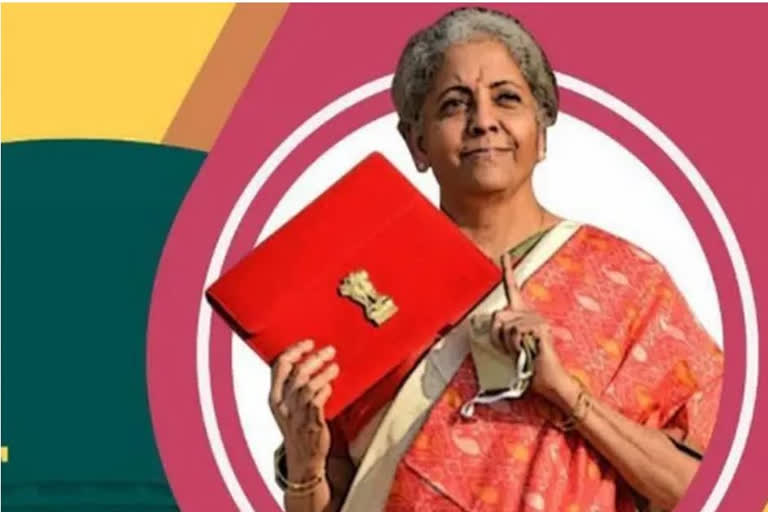New Delhi: Union Finance Minister Nirmala Sitharaman presented the Union Budget 2022-2023 in Lok Sabha on Tuesday, putting forth her plans that have so far received mixed reactions from the experts as well the opposition leaders. Here are the 10 key takeaways from the budget that was presented today:
- Unchanged Tax slabs - Contrary to expectations, there was no change in income tax slabs in the personal income tax category in the Budget unveiled on Tuesday, nor was there a rise in the standard deduction, which was widely anticipated in view of elevated inflation levels and the impact of the pandemic on the middle class. However, the Finance Minister highlighted that the overall sharp rebound and recovery of the economy is reflective of India's strong resilience, adding that there has been remarkable progress made in the Goods and Services Tax (GST) regime, though a few challenges remain. She also highlighted that the effective capital expenditure of the Central Government is estimated to be at Rs 10.68 lakh crore in 2022-23 which is about 4.1 per cent of the GDP, while the fiscal deficit stands at 6.4 per cent of the GDP.
- Cryptocurrency - Sitharaman declared a 30% tax on Bitcoins and proceeds of virtual/digital assets. To bring such assets under the tax net, she proposed a 1 per cent TDS (tax deducted at source) on transactions in asset classes above a certain threshold, while also declaring that gifts in crypto and digital assets will be taxed in the coming financial year. In a big boost to the economy, the digital rupee - using blockchain and other technology - will also be introduced by the RBI in 2022-23, she said.
- Transportation - The Finance Minister announced that the National Highway network will be expanded by 25,000 km during the financial year 2022-23. She also announced that 400 new generation 'Vande Bharat' trains will be rolled out in the next three years. Presenting an eco-friendly approach in the transport arena, the FM also announced that battery swapping policy for Electronic Vehicles will be introduced.
- Mental Health - Sitharaman declared that the Government will launch a national tele-mental health program to deal with the mental health issues people are facing amid the ongoing Covid-19 pandemic. Additionally, she declared the launch of a National Digital Health Ecosystem which will comprise digital registries of healthcare providers and access to universal health facilities.
- PM GatiShakti - The FM highlighted the PM GatiShakti plan, which is an effort of the government to deal with the ongoing unemployment in the country, especially since the pandemic hit. She said that the plan will pull forward the economy and will lead to more jobs and opportunities for the youth. "PM GatiShakti masterplan will encompass the seven engines for economic transformation, seamless multimodal connectivity and logistics efficiency," she added.
- e-Education - For improvisation in the education sector, the FM said that the 200 channels for the ‘one class-one TV channel’ programme of PM eVIDYA in regional languages for classes 1-12 shall be introduced. The govt will also additionally introduce 750 virtual labs, 75 skilling e-labs for the simulated learning environment, high-quality e-content in all spoken languages, digital Teachers with emphasis on the development of quality e-content and a Digital University amid the 'new normal' of the education system.
- Agriculture - Followed by a major outcry by the farmers' community this year, the FM introduced the use of 'Kisan Drones', chemical-free natural farming, increase in domestic production of oilseeds, a scheme in PPP (Public-Private Partnership) mode, funding with blended capital raised under co-investment model, and revised syllabi of agricultural universities to enhance the agricultural practices in the country. Additionally, she also put emphasis on the Ken Betwa project and Other River Linking Projects, along with the promotion of natural farming along the Ganga corridor.
- Border regions - The budget proposed a PM Development Initiative for the North-Eastern region of the country to promote the growth there. Furthermore, to facilitate faster development in the villages on India's northern border, the new 'Vibrant Villages Programme' shall be introduced as India shares a 1,751-km border with Nepal across the states of Uttar Pradesh, Uttarakhand, West Bengal and Bihar.
- e-Passport and 5G - In the digital development arena, the Finance Minister declared that e-Passports with an electronic chip with vital security information encoded on them will be rolled out in 2022-23 in order to enhance convenience for citizens. The FM further declared that the government will conduct a spectrum auction this year to facilitate the roll-out of 5G services by private telecom operators.
- Defence and Make in India - 68 per cent of the Research and Development budget in Defence will be earmarked for Make In India, the FM declared, adding that in the last financial year, the figure stood at 58 per cent. Highlighting that the Government is committed to reducing defence imports, Sitharaman said that 5 per cent of the Universal Service Obligation (USO) Fund would be allotted for Research and Development and up-gradation of technology.
Also read: 'Zero sum', 'pro-rich', 'insipid': Congress reacts to Budget 2022



